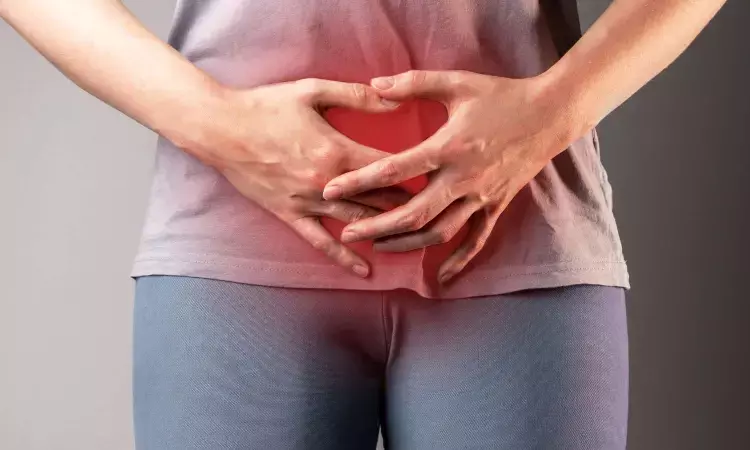- Home
- Medical news & Guidelines
- Anesthesiology
- Cardiology and CTVS
- Critical Care
- Dentistry
- Dermatology
- Diabetes and Endocrinology
- ENT
- Gastroenterology
- Medicine
- Nephrology
- Neurology
- Obstretics-Gynaecology
- Oncology
- Ophthalmology
- Orthopaedics
- Pediatrics-Neonatology
- Psychiatry
- Pulmonology
- Radiology
- Surgery
- Urology
- Laboratory Medicine
- Diet
- Nursing
- Paramedical
- Physiotherapy
- Health news
- Fact Check
- Bone Health Fact Check
- Brain Health Fact Check
- Cancer Related Fact Check
- Child Care Fact Check
- Dental and oral health fact check
- Diabetes and metabolic health fact check
- Diet and Nutrition Fact Check
- Eye and ENT Care Fact Check
- Fitness fact check
- Gut health fact check
- Heart health fact check
- Kidney health fact check
- Medical education fact check
- Men's health fact check
- Respiratory fact check
- Skin and hair care fact check
- Vaccine and Immunization fact check
- Women's health fact check
- AYUSH
- State News
- Andaman and Nicobar Islands
- Andhra Pradesh
- Arunachal Pradesh
- Assam
- Bihar
- Chandigarh
- Chattisgarh
- Dadra and Nagar Haveli
- Daman and Diu
- Delhi
- Goa
- Gujarat
- Haryana
- Himachal Pradesh
- Jammu & Kashmir
- Jharkhand
- Karnataka
- Kerala
- Ladakh
- Lakshadweep
- Madhya Pradesh
- Maharashtra
- Manipur
- Meghalaya
- Mizoram
- Nagaland
- Odisha
- Puducherry
- Punjab
- Rajasthan
- Sikkim
- Tamil Nadu
- Telangana
- Tripura
- Uttar Pradesh
- Uttrakhand
- West Bengal
- Medical Education
- Industry
Do artificially sweetened beverages affect risk of urinary incontinence?

USA: A recent study published in Menopause has claimed that artificially sweetened beverages do not significantly affect the likelihood of developing urinary incontinence in women.
The research showed that neither stress nor urge urinary incontinence was associated with artificially sweetened beverage consumption.
Urinary incontinence, defined as the loss of bladder control and the unintentional leaking of urine, is not only embarrassing but also associated with significant comorbidities, including cognitive impairment, functional decline, falls, fractures, stroke, depression, and overall poorer quality of life. Urinary incontinence affects nearly 20% of women aged older than 50 years. Many factors can influence a woman's risk of urinary incontinence.
Several foods and drinks, such as artificially sweetened beverages, have been thought to have adverse effects on the bladder and lower urinary tract. Still, there are few actual studies to confirm the link between urinary incontinence and artificial sweeteners (although there are rat models that show artificial sweeteners enhance detrusor muscle contraction). This new study, based on an analysis of data from the Women's Health Initiative Observational Study and included more than 80,000 women, specifically sought to examine the association between artificially sweetened beverages and urinary incontinence symptoms. It also aimed to identify which type of urinary incontinence-stress or urge-was most associated.
The study led to the following findings:
• 64% of the participants were rare consumers of artificially sweetened beverages, with 13% consuming greater than or equal to 1 serving per day.
• The unadjusted odds of reporting urinary incontinence were 10% to 12% higher in women consuming one to six servings per week (odds ratio [OR], 1.10) or greater than or equal to one serving per day (OR, 1.12) versus never to less than one serving per week.
• In multivariable analyses, women consuming greater than or equal to one serving per day (ref: never to <1 serving/wk) had 10% higher odds of reporting mixed urinary incontinence (OR, 1.10).
• There were no significant differences in stress or urgency urinary incontinence symptoms between groups.
Study results are published in the article "Artificially sweetened beverages and urinary incontinence-a secondary analysis of the Women's Health Initiative Observational Study."
"This study is important in that it may guide clinicians, counselling women, with urinary incontinence to focus more on behavioural modifications, such as total volume intake, rather than on the type of beverage consumed. Further, given the multiple potential adverse health effects associated with consuming sugar-containing beverages, counselling should be directed away from avoidance of artificially sweetened beverages," says Dr. Stephanie Faubion, NAMS medical director.
Reference:
Ringel, Nancy E. MD, MS1; Hovey, Kathleen M. MS2; Andrews, Chris A. PhD3; Mossavar-Rahmani, Yasmin PhD4; Shadyab, Aladdin H. PhD5; Snetselaar, Linda G. PhD6; Howard, Barbara V. PhD7; Iglesia, Cheryl B. MD8. Artificially sweetened beverages and urinary incontinence—a secondary analysis of the Women's Health Initiative Observational Study. Menopause: December 13, 2022 - Volume - Issue - 10.1097/GME.0000000000002129 doi: 10.1097/GME.0000000000002129
Dr Kamal Kant Kohli-MBBS, DTCD- a chest specialist with more than 30 years of practice and a flair for writing clinical articles, Dr Kamal Kant Kohli joined Medical Dialogues as a Chief Editor of Medical News. Besides writing articles, as an editor, he proofreads and verifies all the medical content published on Medical Dialogues including those coming from journals, studies,medical conferences,guidelines etc. Email: drkohli@medicaldialogues.in. Contact no. 011-43720751


